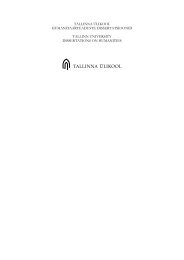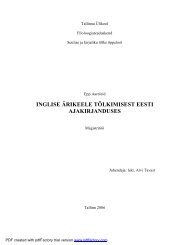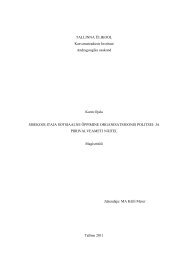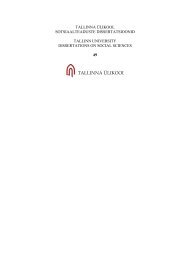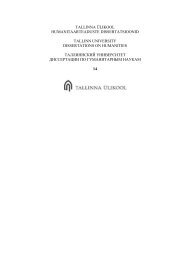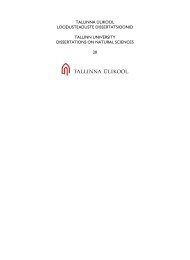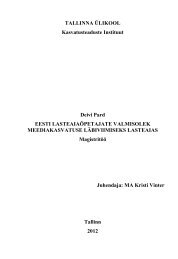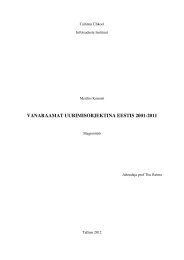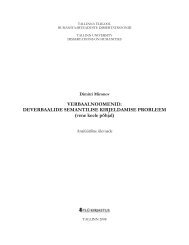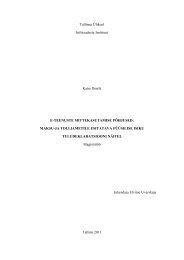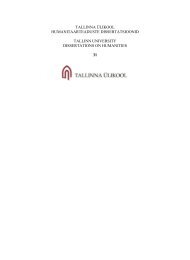Download (1157Kb) - E-Ait
Download (1157Kb) - E-Ait
Download (1157Kb) - E-Ait
Create successful ePaper yourself
Turn your PDF publications into a flip-book with our unique Google optimized e-Paper software.
4.3.1.2. Hiring schemes.<br />
The issue of hiring and recruitment has been challenging enough for libraries. Tanzania<br />
public university libraries are not isolated from such challenges. The changing environment<br />
calls for Tanzania public university libraries to forecast the need for the future and<br />
incorporate this in hiring schemes. Some challenges suggested by Cribb include such<br />
questions as; do we hire for today‟s needs or tomorrow‟s How can we hire for the future<br />
needs of the library How do we go about providing human resource development for the<br />
needs of the organisation as a whole, not just for the specific jobs people perform These<br />
issues are not confined to libraries. Many other organisations are also trying to deal with<br />
these challenges, see (Cribb, 2005, p.7)<br />
As Peter Drucker put forward that the most valuable asset of a 21st century institution will be<br />
its knowledge workers and their productivity, libraries need to switch from hiring for skills<br />
mode. Increased competition demands strategic thinkers. Attributes are outweighing skills in<br />
the knowledge economy. It is possible to train in skills, but no school can provide training for<br />
attributes. You can train someone to be a classifier or a cataloguer or computer specialist, but<br />
how do you train for learning agility Studies done in Australia libraries and presented in the<br />
report “Preparing for demographic change” emphasise the importance of library staff being<br />
“strategic thinkers” in other words being able to see and understand the „big picture‟ and the<br />
environment within which libraries operate. Other attributes considered essential for the<br />
library workforce include: being multi-skilled, from diverse backgrounds, have good<br />
interpersonal skills and being committed to lifelong learning, more suggestions can be found<br />
in (Cribb, 2005).<br />
Even though knowledge sharing allows sharing of experts and reuse of valuable information,<br />
Tanzania public university libraries need to have a recruiting and hiring strategy that is<br />
targeted to fill short and long term human capital needs and, specifically, to fill gaps<br />
identified through its workforce planning efforts. One way to achieve this is to ensure that<br />
recruiting and hiring programs are overseen and proved to be fair and unbiased based on the<br />
demographic profiling maintained by libraries over time. Successful recruiting and hiring<br />
programs will ensure that training and hiring is based on what those who are selected know<br />
and not who they know.<br />
55



